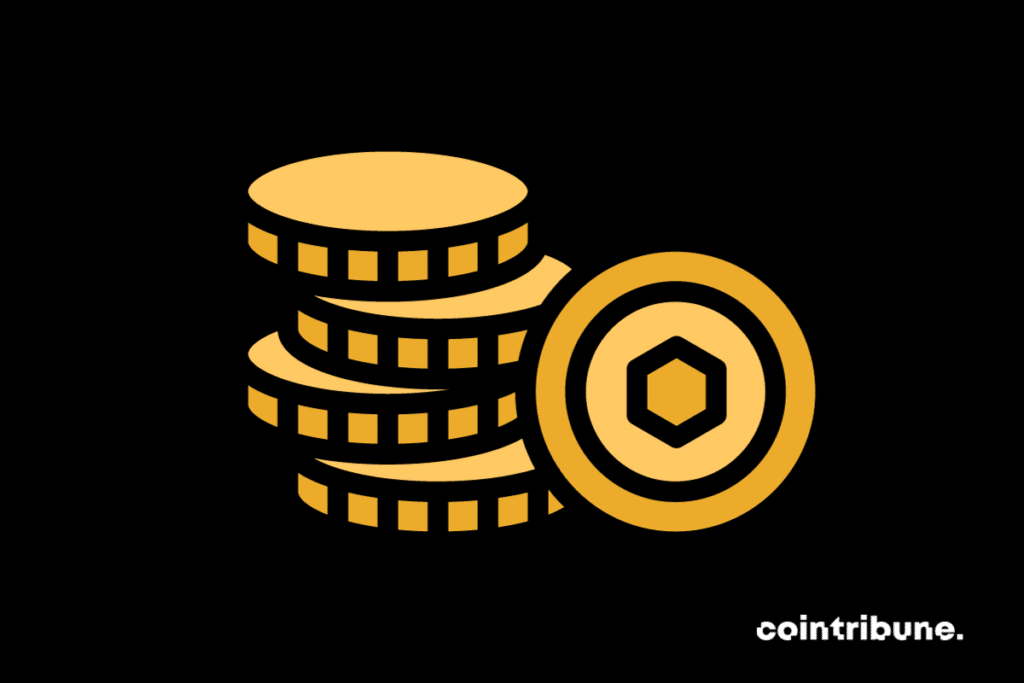Crypto security tokens: A Complete Guide
Security tokens are transforming the landscape of digital finance, introducing a new and regulated dimension to the world of cryptocurrencies. Anchored in blockchain technology, these tokens stand out for their ability to represent real financial assets while offering increased security and transparency. However, their integration into the financial market poses significant challenges, particularly in terms of regulation and investor understanding. This article aims to demystify the concept of security tokens by exploring their functionality, the regulatory frameworks governing them, as well as the advantages and risks they present to investors.

Definition of Security Tokens
Security tokens are an innovative form of digital assets that represent an investment in real financial assets or property rights over these assets. They operate on blockchain technology, ensuring transparency, security, and immutability of transactions. Unlike traditional cryptocurrencies or utility tokens, security tokens are often subject to stringent financial regulations, similar to those governing conventional financial securities like stocks or bonds. This regulation aims to protect investors and ensure product compliance. Security tokens symbolize the convergence between the world of traditional finance and the technological innovations of blockchain, offering new investment and financing opportunities in the digital economy.
Types of Security Tokens
In the realm of security tokens, three main categories of assets stand out due to their nature and functionality: equity tokens, debt tokens, and real estate tokens. Each of these categories offers unique characteristics and meets specific needs in the digital financial market, providing a variety of options for investors and businesses.
Equity Tokens
Equity tokens are at the heart of the digital revolution in financial securities. These tokens represent an ownership share in a company, similar to traditional stocks. Holders of equity tokens often enjoy voting rights and a share of the company’s profits in the form of dividends. This form of tokenization paves the way for a new era of equity investment, making company shares accessible to a broader audience through blockchain technology. Equity tokens democratize stock investment by reducing entry barriers and offering increased liquidity. They present an opportunity for companies to raise capital innovatively while providing investors with enhanced transparency and security through blockchain technology.
Debt Tokens
Debt tokens, on the other hand, are a digital form of debt securities. They represent a loan or debt issued by a company or project. These tokens function like traditional bonds, offering investors periodic interest payments and principal repayment at maturity. Debt tokens allow companies to raise funds without diluting ownership, providing an alternative to equity tokens. For investors, they offer a predictable income source and are often considered less risky than equity tokens. The tokenization of debt transforms the bond market by making these investments more accessible and offering greater flexibility in terms of investment size and duration.
Real Estate Tokens
Lastly, real estate tokens revolutionize real estate investment. These tokens represent a share in a property or real estate portfolio. They enable the fractionalization of real estate ownership, making property investment accessible to a larger number of investors. Real estate tokens offer increased liquidity compared to traditional real estate and allow investors to diversify their portfolios with tangible assets. For real estate developers and owners, tokenization offers a new way to raise funds and manage property ownership. Real estate tokens combine the security of a tangible investment with the benefits of blockchain, such as transparency and reduced transaction costs.

Ethereum, Bitcoin, Polkadot: Which Blockchain for Security Tokens?
The emergence of security tokens has sparked growing interest in the underlying blockchain platforms that support them. Ethereum, Bitcoin, and Polkadot stand out as popular choices, each offering unique features tailored to different needs and objectives of security tokens.
Ethereum: The Preferred Platform for Security Tokens
Ethereum is often considered the platform of choice for security tokens, primarily due to its smart contract functionality. These smart contracts enable advanced automation and customization of security token transactions, offering increased flexibility and efficiency. Ethereum has established a robust standard in token issuance with standards such as ERC-20 and ERC-721, facilitating the creation and management of security tokens. Additionally, Ethereum’s widespread adoption and well-established ecosystem provide a solid foundation for the development and liquidity of security tokens. However, challenges related to transaction fees and scalability are important considerations for those opting for this blockchain.
Bitcoin: A Secure but Limited Approach
Although Bitcoin is the first and most well-known cryptocurrency, its use for security tokens is limited due to its original design focused on payments. The Bitcoin blockchain offers exceptional security and stability but lacks the flexibility of smart contracts, which are crucial for the complex management of security tokens. Solutions such as sidechains or layer 2 protocols have been developed to overcome these limitations, enabling some integration of security tokens. However, these solutions may be less intuitive and less accessible than dedicated platforms like Ethereum.
Polkadot: A New Horizon for Security Tokens
Polkadot emerges as a promising alternative with its unique interconnected blockchain architecture. This platform allows for greater scalability and interoperability between different blockchains, which is crucial for the fluidity and efficiency of security token transactions. Polkadot offers the possibility to create customized blockchains while benefiting from the security and governance of its main blockchain. This flexibility and adaptability make Polkadot an attractive choice for innovative security token projects, especially those looking to leverage the advantages of multiple blockchains simultaneously.
Regulation and Compliance of Security Tokens
Regulation and compliance are crucial aspects of the security token domain. As the cryptocurrency industry evolves, understanding and adhering to regulations become necessary for companies and investors involved in security tokens.
Understanding the Role of Regulation in the Security Token Universe
The regulation of security tokens is fundamental to ensuring investor safety and market integrity. Unlike traditional cryptocurrencies and utility tokens, security tokens are often considered financial securities and are thus subject to stringent financial regulations. These regulations vary by jurisdiction but generally aim to ensure transparency of offerings, adequate disclosure of information, and protection against fraud and market abuse.
For instance, in the United States, security tokens often need to comply with SEC (Securities and Exchange Commission) regulations, including rules on public and private offerings and reporting requirements. Regulatory compliance helps establish the credibility of security tokens among institutional investors and regulators, facilitating their adoption and integration into the traditional financial system. Companies issuing security tokens must therefore be diligent in understanding and applying relevant laws and regulations to avoid sanctions and maintain investor trust.
KYC and AML: Regulatory Requirements for Security Tokens
Know Your Customer (KYC) and Anti-Money Laundering (AML) procedures are essential components of security token regulation. These measures are implemented to prevent illegal activities such as money laundering and terrorist financing. KYC procedures involve verifying investors’ identities, ensuring they are legitimate and authorized to invest. This includes collecting identity documents, verifying addresses, and sometimes the source of funds.
AML measures consist of monitoring suspicious transactions and reporting potentially illegal activities to the relevant authorities. For companies issuing security tokens, implementing robust KYC and AML procedures is not only a regulatory obligation but also an important practice to maintain the integrity of their offerings. This helps create a safe and transparent investment environment, reinforcing investor confidence and ensuring compliance with international laws. By integrating these procedures, security token platforms can attract a broader and more serious investor base while avoiding legal and financial risks associated with illegal activities.
How to Invest in Security Tokens?
Investing in security tokens offers unique opportunities, but it requires a proper approach. Here’s how to proceed with investing in these assets.
How and Where to Buy Security Tokens?
Buying security tokens starts with identifying the appropriate platforms that offer these investments. These platforms are often specialized crypto exchanges or security token trading platforms that comply with financial regulations. Before proceeding with the purchase, investors must undergo KYC (Know Your Customer) procedures to ensure compliance with AML (Anti-Money Laundering) regulations.
Once these conditions are met, investors can deposit funds on the platform, usually in the form of cryptocurrency or fiat currency, and begin buying security tokens. It is important to conduct thorough research on specific tokens, understanding the company’s business model, token structure, and associated rights. Investors should also be aware of market conditions, trends, and analyses to make informed decisions. Additionally, it is recommended to consult financial experts or investment advisors for a better understanding of the implications and strategies for investing in security tokens.
Advantages and Risks of Investing in Security Tokens
Investing in security tokens offers several advantages. These assets provide increased liquidity compared to traditional investments, allowing investors to sell or trade their tokens more easily. Security tokens also offer enhanced transparency through blockchain technology, ensuring better visibility of transactions and property rights. Furthermore, they allow for portfolio diversification by giving access to assets and projects previously inaccessible to many investors.
However, these advantages come with significant risks. The security token market is still relatively new and may be subject to high volatility. Regulatory risks are also a major factor, as laws and regulations concerning security tokens can evolve rapidly, potentially impacting the value and legality of investments. Additionally, technological risks, such as the security of trading platforms and management of digital wallets, must be considered. Investors should carefully assess their risk tolerance and investment strategy before entering the security token market.
Conclusion
Security tokens represent a genuine revolution in the digital finance landscape, offering a unique combination of transparency, security and regulatory compliance. By facilitating the tokenization of real financial assets and bringing a new dimension to investment, they open the way to innovative opportunities for investors and businesses alike. However, this technology is still in its infancy, and requires a good understanding of the regulatory and technical aspects, as well as the associated risks. For those wishing to delve deeper into the process of creating and managing security tokens, discover this comprehensive guide to creating a security token, which will provide you with the steps and keys to navigating this new ecosystem.
Maximize your Cointribune experience with our "Read to Earn" program! For every article you read, earn points and access exclusive rewards. Sign up now and start earning benefits.
Diplômé de Sciences Po Toulouse et titulaire d'une certification consultant blockchain délivrée par Alyra, j'ai rejoint l'aventure Cointribune en 2019. Convaincu du potentiel de la blockchain pour transformer de nombreux secteurs de l'économie, j'ai pris l'engagement de sensibiliser et d'informer le grand public sur cet écosystème en constante évolution. Mon objectif est de permettre à chacun de mieux comprendre la blockchain et de saisir les opportunités qu'elle offre. Je m'efforce chaque jour de fournir une analyse objective de l'actualité, de décrypter les tendances du marché, de relayer les dernières innovations technologiques et de mettre en perspective les enjeux économiques et sociétaux de cette révolution en marche.
The views, thoughts, and opinions expressed in this article belong solely to the author, and should not be taken as investment advice. Do your own research before taking any investment decisions.